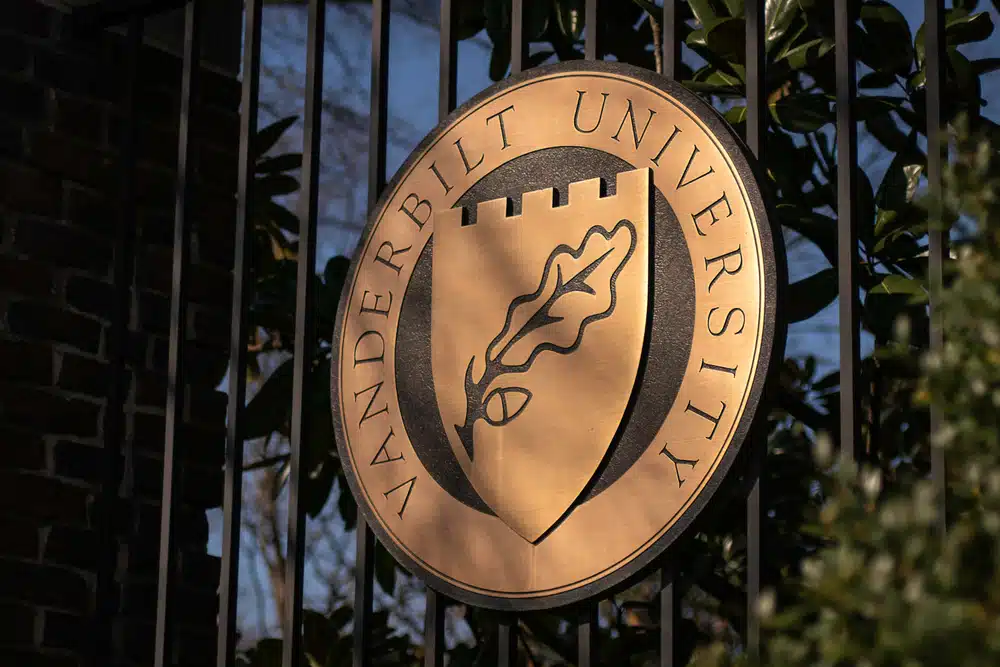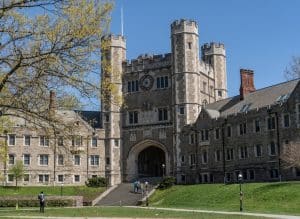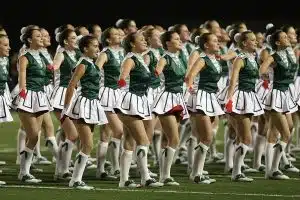Considering Vanderbilt University? More than just sipping sweet tea in Nashville or living the Southern dream, Vanderbilt has built a reputation for offering top-tier academic programs. Ranked #18 in the U.S. News & World Report, Vanderbilt stands out as one of the most prestigious universities in the nation. But what majors is Vanderbilt known for?
From engineering brainiacs to future policy wonks and music prodigies, this school has majors that put students on the map. If you’re curious to know which ones steal the spotlight, let’s break it down and see what makes these programs so buzzworthy.
- Vanderbilt’s 5 Best Majors
- What Makes Vanderbilt Unique?
- Vanderbilt Demographics
- Frequently Asked Questions
- Takeaways
Vanderbilt’s 5 Best Majors
When it comes to picking a major at Vanderbilt, the options are anything but boring. With four undergraduate schools, College of Arts and Science, School of Engineering, Peabody College of Education and Human Development, and Blair School of Music, there’s something for everyone. Let’s talk about what majors is Vanderbilt known for:
1. Economics
Economics is the #1 most popular choice for undergrads at Vanderbilt, and honestly, it’s no surprise. Ranked #22 in the nation by the U.S. News & World Report, the program is a powerhouse. Vanderbilt’s economics program combines economic theory with real-world applications that actually matter.
Want proof of its impact? Look no further than Muhammad Yunus, a Vanderbilt alum who won a Nobel Peace Prize for his work in microfinance and economic development. Talk about a legacy!
Economics majors at Vanderbilt jump into internships and job opportunities in Nashville’s booming industries, like healthcare and entertainment. By the time they graduate, they’re landing gigs at top companies like Goldman Sachs and Deloitte or heading off to prestigious grad schools for law, business, or policy.
If you’re after a major that’s as practical as it is respected, economics at Vanderbilt is where it’s at. It’s no wonder economics is one of the answers to what majors Vanderbilt is known for.
2. Biomedical engineering
If you’re into science, tech, and saving lives, Vanderbilt’s biomedical engineering (BME) program is one of the majors Vanderbilt is best known for. Vanderbilt started offering a bachelor’s degree in biomedical engineering all the way back in 1968, which makes it one of the first in the nation.
Ever since then, Vanderbilt’s BMe program it’s still going strong, fully accredited by the Accreditation Board for Engineering and Technology, Inc. (ABET) and consistently respected nationwide.
Here’s the cool part: Vanderbilt’s BME department is basically neighbors with the Vanderbilt University Medical Center (VUMC). That means you have access to insane research opportunities right from freshman year.
If you’re into designing life-saving medical devices, building AI-driven diagnostic tools, or getting into biomedical imaging, you’re in the thick of it here. And you can even earn course credit for research once you’re an upperclassman.
Every year, the program produces 50–70 graduates, including a bunch of double majors, and they go on to do some seriously impressive stuff:
- Half jump straight into jobs with major companies like Johnson & Johnson, Epic, St. Jude Medical, and Texas Instruments.
- A quarter head to top grad schools, including Cornell, UCLA, and Texas A&M.
- Another quarter go to medical school, with alumni crushing it at places like Harvard, Baylor College of Medicine, and NYU Med School.
If you’re dreaming of building the next big medical device or revolutionizing healthcare tech, Vanderbilt’s BME program is the ultimate springboard. It’s no surprise biomedical engineering is one of the top answers to what majors is Vanderbilt known for.
3. Psychology
Psychology is the third most popular choice among undergraduates at Vanderbilt, and with its reputation for excellence, it’s easy to see why it’s part of what majors Vanderbilt is known for.
Vanderbilt’s psychology program is ranked #8 in the 2024 U.S. News Best Undergraduate Psychology Programs, tied with top schools like Columbia, Cornell, and Duke. Its graduate program ranks #12, which goes to show that Vanderbilt provides world-class psychology education at every level.
One thing that makes this program stand out is its incredible faculty. Three of the department’s faculty members are part of the National Academy of Sciences, one of the highest honors for researchers in the U.S.
Psychology students at Vanderbilt get into hands-on research as early as their freshman year. From studying how memory works or understanding child development to exploring how stress affects decision-making, there’s no shortage of opportunities to get involved.
On top of that, Vanderbilt’s location in Nashville is a huge plus. The city’s booming healthcare and nonprofit sectors give students access to internships and real-world experience, whether it’s working with patients, assisting in research, or contributing to community programs.
If you’re fascinated by how the human mind works and want to turn that curiosity into a meaningful career, Vanderbilt’s psychology program is a no-brainer.
4. Music
If you’re a musician with big dreams, Vanderbilt’s Blair School of Music is another top choice when it comes to the majors Vanderbilt is known for. It’s ranked as one of the top traditional music colleges in the U.S. and it offers conservatory-level training that’s laser-focused on helping you reach your greatest musical potential.
Blair is undergraduate-only, which means all the attention is on you. With a 200-student limit and a 4:1 student-to-faculty ratio, you’ll work one-on-one with some of the best musicians and educators in the business. If you’re mastering a classical piece, jamming in a jazz ensemble, or writing your own music, the personalized instruction here is unmatched.
And let’s talk about location: Blair is right in the heart of Nashville, aka Music City. It doesn’t get better than this for a music student. You’ll have access to iconic venues like the Ryman Auditorium and a thriving music scene that’s perfect for making connections and finding inspiration.
Blair grads leave with incredible opportunities. Many go on to perform, compose, or teach, and others continue at top schools like Juilliard or Eastman. Music is undoubtedly one of the answers to what majors Vanderbilt is known for.
5. Mathematics
When it comes to what majors Vanderbilt is known for, mathematics deserves a big shout-out. If you think math is just about solving equations, Vanderbilt’s math program will change your mind. This isn’t your typical number-crunching degree, it’s about tackling some of the world’s most complex problems.
From understanding the physics of black holes and studying how diseases spread to breaking down cryptography, Vanderbilt’s math department has you covered.
The faculty? Absolute rock stars. Here’s the lineup:
- Three International Congress of Mathematicians speakers
- Nine Fellows of the American Mathematical Society (AMS)
- Five Sloan Fellows
- Two National Science Foundation (NSF) CAREER awardees
And that’s just scratching the surface. We’re talking prize winners, Simons Fellows, and even a Mirzakhani lecturer.
On top of that, the department is stacked with research opportunities. They’re backed by major organizations like the NSF and National Institutes of Health (NIH), funding projects that range from operator algebras to mathematical physics.
Students also get access to some seriously cool resources, like the internationally recognized Shanks Workshop, the Center for Noncommutative Geometry, and programs like VandyGRAF (think Gravity, Waves, and Fluids).
What happens after you graduate? Vanderbilt math majors end up everywhere, from tech giants like Google to top finance firms and even NASA. From jumping into data science or continuing your studies at a grad school like MIT or Stanford, this program sets you up for success.
Bottom line: If you’re a math nerd (or just math-curious), Vanderbilt’s math program is where you want to be. It’s challenging, exciting, and full of opportunities to geek out on a whole new level. That’s exactly why math is one of the top answers to what majors Vanderbilt is known for.
What Makes Vanderbilt Unique?
So, we’ve talked about what majors Vanderbilt is known for, but what makes this place unique? There’s a lot to love about Vanderbilt, from its balance of academics and social life to its amazing research opportunities and generous financial aid. Let’s break it down:
A balance between academics and social life
Vanderbilt nails the perfect combination of “work hard, play hard.” Students here are ambitious, putting their all into academics, but they’re just as serious about enjoying life outside the classroom.
One of the biggest perks is The Commons—a first-year living and learning community that’s more than just dorms. It’s a place where students can take part in weekly house events, hear inspiring guest speakers, or even join faculty-led book clubs.
Campus life is full of activities that keep the vibe upbeat. Rites of Spring, for example, is Vanderbilt’s legendary annual music festival, where artists like Kendrick Lamar, Lizzo, and The Lumineers have performed.
Beyond the big events, there are over 500 student organizations to choose from, including cultural groups, debate teams, and even Quidditch. If you’re into Greek life, roughly 28% of students participate in fraternities and sororities, which makes it a significant part of campus culture.
For a more relaxed vibe, students can explore Nashville’s famed coffee shops like Fido or grab dinner with friends at the Pancake Pantry, a favorite spot just minutes from campus.
A deep commitment to research
Research at Vanderbilt is both for grad students and undergrads alike. For example, biomedical engineering students have helped design a robotic surgical arm that improves precision in spinal surgeries.
In the psychology department, undergrads have participated in groundbreaking studies on how early childhood stress impacts memory development.
Programs like Immersion Vanderbilt take research to the next level. You can pursue independent projects, like studying climate change’s effects on Nashville’s urban planning or developing software to enhance accessibility for people with disabilities. Faculty mentors, who are leaders in their fields, help guide you every step of the way.
If you’re looking for big names in research, Vanderbilt has you covered. The university is home to the Vanderbilt University Medical Center, one of the nation’s top hospitals, and its research collaborations often involve institutions like NASA and the National Institutes of Health.
Accessibility and resources
Let’s talk money: college isn’t cheap, but Vanderbilt’s Opportunity Vanderbilt program makes it a whole lot easier.
Since 2008, this initiative has made sure that Vanderbilt meets 100% of every student’s demonstrated financial need—without loans. That’s right, absolutely zero loans. Financial aid packages are made up entirely of grants and scholarships, so you can graduate without drowning in debt.
Here’s how it works: admissions are need-blind for U.S. citizens and eligible non-citizens, which means your financial situation doesn’t factor into whether you get in. Plus, there are no income cut-offs, so students from all financial backgrounds have a shot at generous aid.
Since its launch, Opportunity Vanderbilt has provided over $2.6 billion in financial aid to help students focus on their future instead of worrying about the bill.
And the support doesn’t stop once you’re on campus. Vanderbilt keeps aid consistent throughout your time there (as long as your family’s finances stay the same), so there are no surprises. They also have tons of other resources to make sure you thrive, like free tutoring, mental health counseling, and career coaching through the Career Center.
If you’re passionate about service or leadership, programs like the Ingram Scholars Program and Cornelius Vanderbilt Scholarship provide even more opportunities to fund your education. At Vanderbilt, it’s not just about getting an education, it’s about making sure you succeed while you’re there and long after you graduate.
Vanderbilt Demographics
The demographics of Vanderbilt’s student body is always evolving, and while there have been some noticeable changes in racial and ethnic diversity, the university has made progress in other areas.
For the Class of 2028, 39% of students identify as white, with 19% Asian or Pacific Islander, 11% Hispanic, 11% international, 9% Black, 6% multi-racial, 4% unknown, and less than 1% Native American.
Compared to last year’s statistics, there’s been a 14% jump in white students, but drops of 47% in Black students, 27% in Latinx students, and 10% in multi-racial students. On the flip side, Vanderbilt is stepping up its efforts to recruit students from diverse socioeconomic and geographic backgrounds.
This year, 23% of undergraduates are Pell Grant-eligible, up from 20% last year and 18% in 2022. Plus, 15% of students are first-generation college students, steadily increasing from 12.9% last year and 11% in 2022.
Rural representation is also on the rise: 27.3% of first-years from Tennessee are from small-town or rural areas, compared to just 10.4% last year. It’s a big step in expanding access to students from less-represented areas.
Gender representation is another area where Vanderbilt is working toward balance. In the School of Engineering, women make up over 50% of the first-year class for the third year in a row—a huge win for gender diversity in STEM.
But when you zoom out, men still account for 55% of the undergrad engineering population and 59% when graduate and professional students are included.
More women apply to Vanderbilt than men, but it’s reportedly harder for them to get in because the school tries to maintain a gender balance across campus. Yes, Vanderbilt factors gender into admissions, and it’s all part of how the university shapes its dynamic student body.
Vanderbilt’s student body is as dynamic as it gets. From small-town students to first-gen pioneers and future engineers breaking barriers, the campus brings together a wide range of perspectives. While there’s still work to do, Vanderbilt is clearly making moves to build a community that’s vibrant, inclusive, and always evolving.
Frequently Asked Questions
1. What majors is Vanderbilt known for in the arts?
Among its majors in the arts, Vanderbilt is known for its music program at the Blair School of Music. With a 200-student limit and a 4:1 student-to-faculty ratio, you’ll work one-on-one with some of the best musicians and educators in the industry. It also offers connections to Nashville’s vibrant music scene.
2. What makes Vanderbilt unique from other schools?
Vanderbilt stands out for its balance of rigorous academics and vibrant campus life. Few schools combine “work hard, play hard” like Vanderbilt, with top-notch research, events like Rites of Spring, and first-year communities like The Commons. Its Opportunity Vanderbilt program, which meets 100% of demonstrated financial need without loans, makes sure students from all backgrounds can thrive. Plus, being in Nashville means endless opportunities in music, culture, and careers.
3. How diverse is Vanderbilt’s demographics?
Vanderbilt’s demographics include students from all 50 states and over 70 countries. The current undergraduate population is 39% white, 19% Asian or Pacific Islander, 11% Hispanic, 11% international, 9% Black, and 6% multi-racial. The university has also made progress in socioeconomic diversity, with 23% of undergraduates being Pell Grant-eligible and 15% identifying as first-generation college students.
4. What majors is Vanderbilt known for in STEM fields?
Vanderbilt is known for its biomedical engineering major, one of the first in the country. It offers students hands-on research opportunities at the Vanderbilt University Medical Center. Mathematics is another standout, with faculty specializing in cutting-edge fields like data science, mathematical physics, and epidemiology. These majors prepare students for top careers in healthcare, tech, and academia.
Takeaways
Here’s a quick recap of what majors Vanderbilt is known for and everything else you need to know:
- When it comes to the majors Vanderbilt is known for, economics, biomedical engineering, psychology, mathematics, and music lead the way.
- What majors is Vanderbilt known for in research? Fields like biomedical engineering and psychology let students work on real-world challenges, from designing life-saving medical devices to studying how stress impacts decision-making.
- With events like Rites of Spring, first-year communities like The Commons, and over 500 organizations, the university shows why it’s more than just what majors Vanderbilt is known for. Vanderbilt is all about the full college experience.
- Through Opportunity Vanderbilt, financial barriers are removed. Students from diverse backgrounds can focus on their studies without the stress of loans. This program makes sure a Vanderbilt education is within reach for everyone.
- Dreaming of calling Vanderbilt home? Whether you’re exploring what majors Vanderbilt is known for or need expert advice to make a standout application, a college admissions consultant can guide you every step of the way.










































